Posted on 2/27/2026
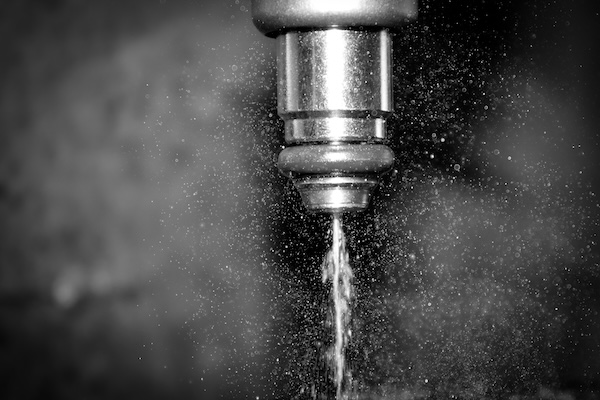
Modern vehicles rely on precise fuel delivery to run efficiently, smoothly, and reliably. At the center of this process are fuel injectors, which spray a fine mist of fuel into the engine for combustion. When these injectors become clogged or dirty, that precision is lost—and your vehicle’s performance can suffer in noticeable ways. Clogged fuel injectors are a common issue, especially as vehicles age or when maintenance is neglected. Understanding how this problem develops and recognizing the warning signs early can help you avoid more serious engine damage and costly repairs. What Do Fuel Injectors Do Fuel injectors are responsible for delivering the exact amount of fuel your engine needs at the right time. They operate under high pressure and are designed to atomize fuel into a fine spray. This allows the fuel to mix efficiently with air, ensuring proper combustion. When injectors are clean and functioning correctly, your engine runs smoothly, accelerates properly, a ... read more
Posted on 1/30/2026
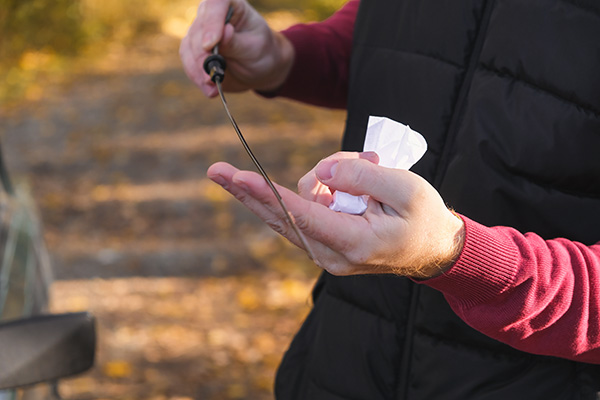
Oil seems simple until it starts disappearing. Maybe you spot a small stain where you park, or the dipstick drops faster than it used to. Sometimes you notice a faint burnt smell after a drive, or a little smoke when you pull away from a light. The tricky part is that oil loss can come from two very different paths, and the next steps are not the same for each one. Early Signs Your Engine Is Losing Oil Most drivers first notice the oil light flicker on turns, a low-oil message, or the dipstick reading lower than expected between changes. You might also notice the engine smells hot after a longer drive, especially if oil is landing on a warm surface. A small leak can leave a stain that comes and goes, since wind and road spray can spread it around before it drips to the ground. There is often a timeline to this. Early on, it feels occasional, like you top it off once and move on. If the underlying cause persists, the top-offs get closer together, and that is when th ... read more
Posted on 12/19/2025
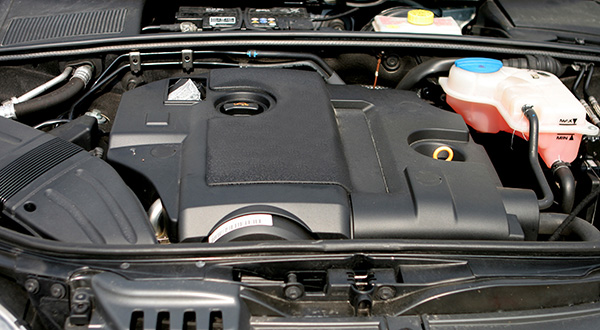
An oxygen sensor plays a big role in how your engine runs and how much fuel you burn. When it starts to fail, the car usually does not quit right away. Instead, you get a handful of clues that something in the fuel control system is off. Catching those signs early can save you gas money, protect the catalytic converter, and keep you from chasing repeated check engine lights. What Your Oxygen Sensor Does for the Engine The oxygen sensor sits in the exhaust and measures how much oxygen is left after combustion. The engine computer uses that signal to fine-tune how much fuel it injects, constantly making tiny adjustments to keep the mixture in the sweet spot. When the sensor is healthy, the system can react quickly to changes in load, temperature, and driving conditions. If the sensor gets slow or inaccurate, the computer starts working with bad information. The mixture may run richer or leaner than it should, and that shows up as poor fuel economy, lazy throttle respo ... read more
Posted on 11/28/2025

Owning a Ford is easy when you keep a few habits in mind. The right fluids, a healthy cooling system, and simple checks go a long way toward quiet, smooth driving in Marina Del Rey traffic. Whether you commute along Lincoln or spend weekends hauling gear to the marina, these seven tips help your Ford stay reliable, efficient, and free of weird noises. 1. Oil Specification And Interval Choices For EcoBoost Engines Ford’s EcoBoost engines are efficient, but they run hot and depend on the correct oil. Always use the exact viscosity and Ford approval listed on the cap or in the manual. If most of your trips are short or involve beach traffic, change oil sooner than the longest interval to keep turbo bearings and timing components happy. A clean filter and the right oil chemistry help prevent varnish that can cause rattles at startup and sticky cam phasers. Small maintenance choices here pay off in quiet, smooth running. 2. Transmission Fluid Service For ... read more
Posted on 10/31/2025
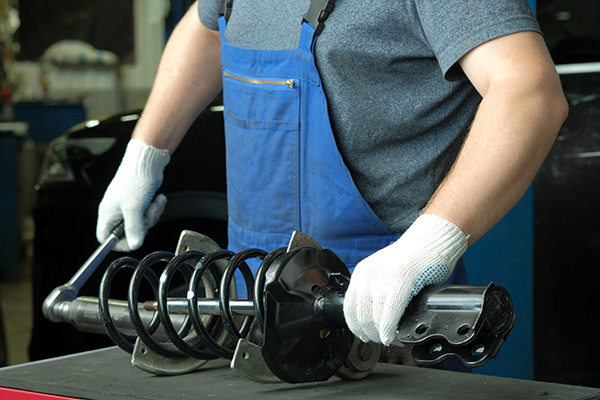
As cooler weather settles in and road conditions begin to change, your vehicle’s suspension becomes even more important for safety and comfort. Winter brings rain, potholes, slick roads, and lower tire grip, all of which place more strain on suspension components. If your suspension is already worn or out of alignment, it can make driving in these conditions more dangerous and more uncomfortable. Before winter fully sets in, now’s the time to inspect the key parts of your suspension system to ensure your vehicle is ready for whatever the season brings. Why Suspension Health Is Important for Safety Your suspension isn’t just about ride comfort. It plays a critical role in how your car handles and how well your tires stay in contact with the road. During winter, when traction can be limited, a reliable suspension helps distribute weight properly and absorb road shocks from potholes or uneven pavement. If your car bounces excessively, leans into turns ... read more
Posted on 9/26/2025
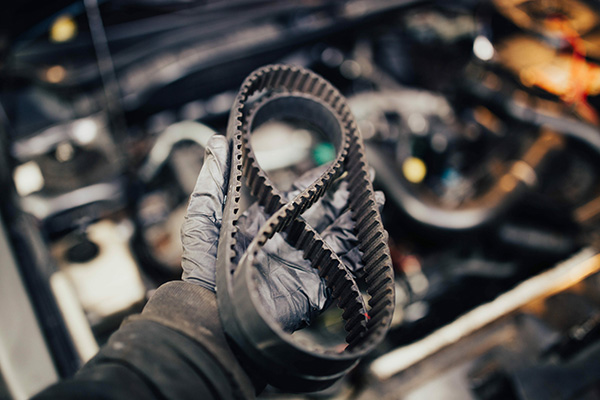
Replacing a timing belt is one of the most important maintenance tasks for many vehicles. It’s a job that typically comes up between 60,000 and 100,000 miles, depending on the manufacturer’s recommendation. But when the time comes to change the belt, there’s more to consider than just the belt itself. Replacing the timing belt without addressing related components can lead to costly problems later. That’s because these surrounding parts work in tandem with the belt, and if one fails after the belt is replaced, you’re stuck paying for labor all over again. Let’s take a closer look at which components should be replaced during a timing belt service and why it matters. The Timing Belt’s Role in Your Engine The timing belt coordinates the rotation of your engine’s camshaft and crankshaft. This precise synchronization ensures that your engine’s valves open and close at exactly the right time in relation to the piston ... read more
Posted on 8/29/2025
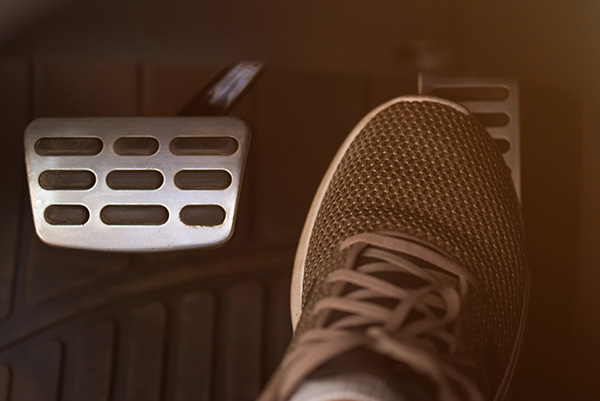
Smooth acceleration is something most drivers take for granted—until it is gone. If your car begins to vibrate when you press the gas pedal, it can be distracting, uncomfortable, and even alarming. While some causes are minor, others may point to serious mechanical problems that need immediate attention. Being aware of the most common reasons for acceleration-related vibrations can help you identify the issue early and avoid costly repairs. Engine Problems If the vibration happens primarily under acceleration, the engine itself may be the culprit. Worn or fouled spark plugs can cause misfires, resulting in an uneven engine run. Damaged ignition coils or fuel injectors can have a similar effect. In some cases, engine mounts that hold the motor securely in place can wear or break. This allows the engine to shift slightly under load, creating a noticeable vibration inside the cabin ... read more
Posted on 7/25/2025
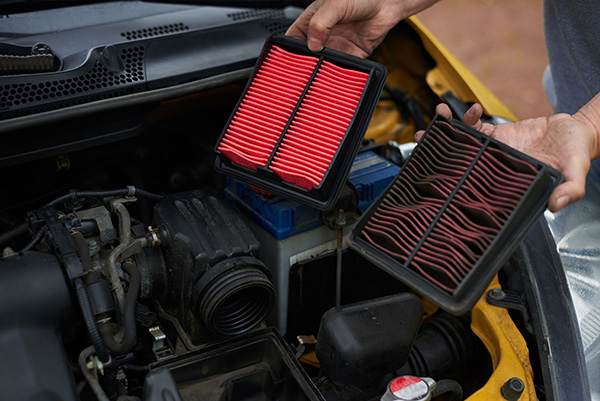
Most drivers think of oil changes and tire rotations when they consider routine car maintenance, but vehicle filters are often overlooked. While they might seem like small components, filters play a major role in your vehicle’s health and performance. Over time, these filters can become dirty or clogged, affecting everything from engine efficiency to cabin air quality. So, can a dirty filter really impact your vehicle’s performance? Absolutely — and here’s why. The Importance of Engine Air Filters Your engine needs clean air to perform efficiently. The engine air filter prevents dirt, dust, and debris from entering the combustion chamber. When this filter is clean, the engine can breathe easily and maintain optimal air-to-fuel ratios. A dirty or clogged air filter restricts airflow, forcing your engine to work harder. This can reduce power, lower fuel efficiency, and cause sluggish acceleration. In severe cases, it can even lead to ... read more
Posted on 6/27/2025
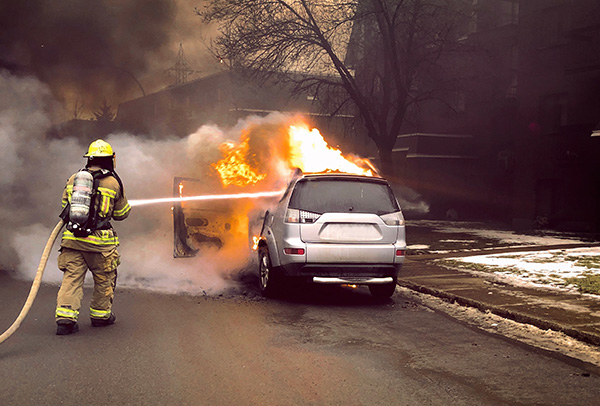
When most drivers think of vehicle emergencies, they don’t usually imagine their car catching fire. Still, thousands of vehicle fires occur every year across the U.S., and while many are linked to crashes, a surprising number start under normal driving or even while parked. The good news is that the vast majority of these fires are preventable. With a little awareness and regular maintenance, you can keep your vehicle and yourself out of harm’s way. What Makes a Car Fire Start in the First Place There’s no single cause behind every vehicle fire, but they all come down to the same basic formula: heat, fuel, and ignition. The heat comes from the engine, the fuel can be anything from leaking oil to flammable materials in the cabin, and the ignition could be a spark from a frayed wire or the surface of a red-hot manifold. Many of these conditions exist in every vehicle—what separates a safe car from a dangerous one is how well it’s maintaine ... read more
Posted on 5/30/2025
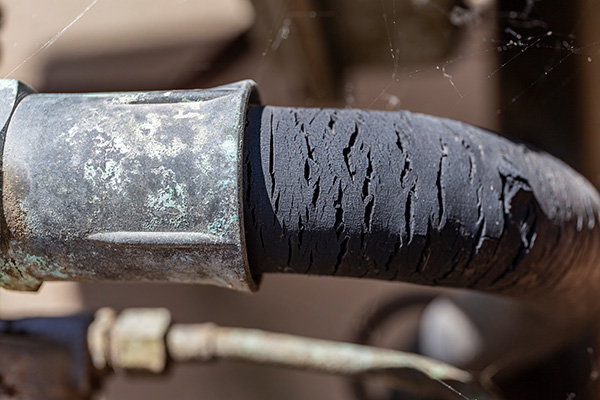
It’s easy to overlook a cracked hose or worn belt when everything else under the hood seems to be working fine. But what may seem like a small issue now can quickly turn into a big problem later. Hoses and belts are some of the most critical components in your engine bay, and when they fail, they often do so without much warning. Ignoring these signs puts your car at risk, and it can also leave you stranded, cause costly engine damage, or even result in a breakdown on the side of the road in the middle of traffic. Let’s look at what these parts do, how to spot trouble early, and why it’s worth fixing the issue before it escalates. Engine Belts and Hoses Under the hood, belts and hoses manage everything from engine cooling to electrical charging. The serpentine belt powers the alternator, power steering pump, water pump, and sometimes the A/C compressor. Without it, your vehicle won’t run for long. Timing belts or timing chains, depending on y ... read more